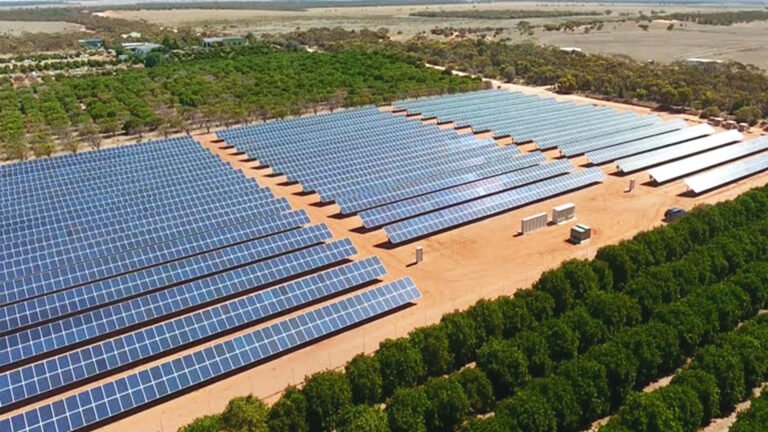Bharain has a new addition to its nation’s solar power plants. Deputy Prime Minister Shaikh Khalid bin Abdullah Al Khalifa recently inaugurated a cutting-edge 4.7-megawatt power station powered by photovoltaic solar panels, operated by Imerys Al Zayani.
The dignitaries present at the event were Yasser bin Ibrahim Humaidan, Minister of Electricity and Water Affairs, and Abdullah bin Adel Fakhro, Minister of Industry and Commerce. The Deputy Prime Minister emphasized the private sector’s pivotal role in bolstering environmental security, striving to reduce carbon emissions by 30% by 2035 and achieve carbon neutrality by 2060. These efforts coincide with the comprehensive development process led by King Hamad bin Isa Al Khalifa and overseen by Prince Salman bin Hamad Al Khalifa.
Shaikh Khalid stressed upon the importance of countering environmental challenges and preserving resources, in accordance with Bahrain Economic Vision 2030 and the Government Plan (2023-2026). The focus lies on energy sustainability, transitioning, and encouraging renewable energy sources in the national energy mix.
Shaikh Khalid emphasized upon the National Renewable Energy Action Plan (NREAP) and the National Energy Efficiency Action Plan (NEEAP), two priorities overseen by the Ministerial Committee for Development and Infrastructure Projects.
He further acknowledged Bahrain’s diverse industrial sector and praised efforts to channel investments into advanced industries, aligning with the Government’s Industrial Sector Strategy (2022-2026). The strategy emphasizes circular economy principles and environmental and social governance to boost the sector’s GDP contribution, enhance exports, and create job opportunities.
Shaikh Khalid lauded the partnership between Al Zayani Investments and Imerys, emphasizing the Economic Development Board’s role in promoting Bahrain as an investment-friendly destination.
Khalid Al Zayani highlighted the government’s commitment to sustainability through renewable energy utilization, which will notably reduce carbon emissions by 5,000 tonnes annually, equivalent to 15% of the company’s emissions, and generate 25% of its electricity consumption with the installation of 8,600 solar panels.


